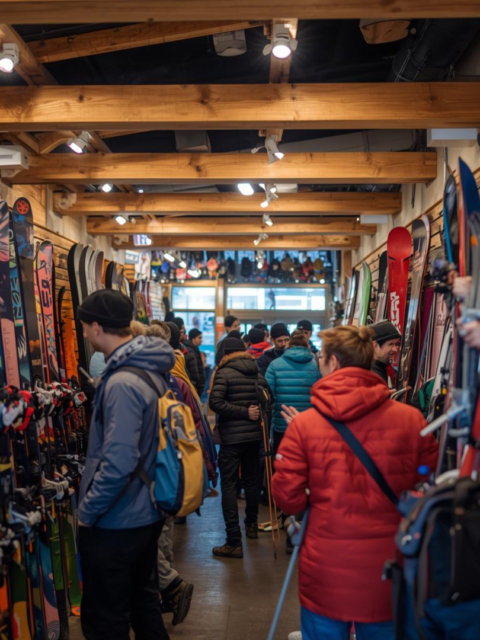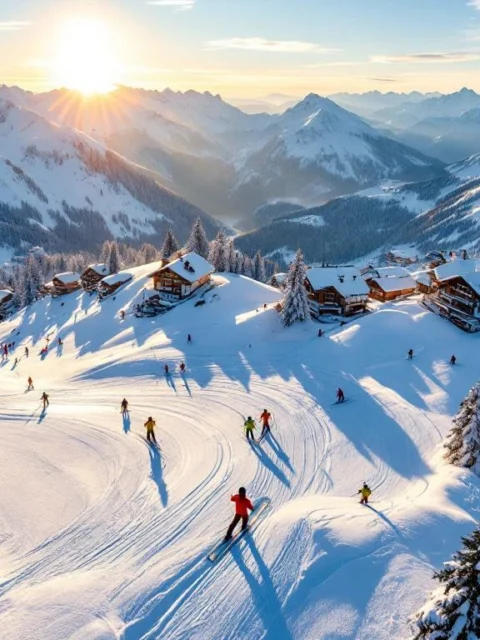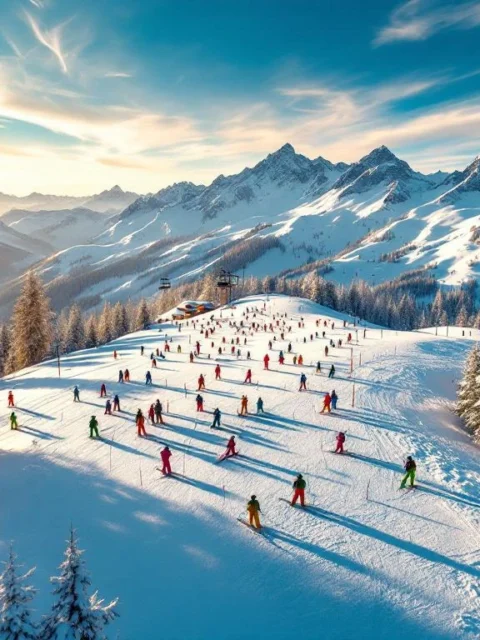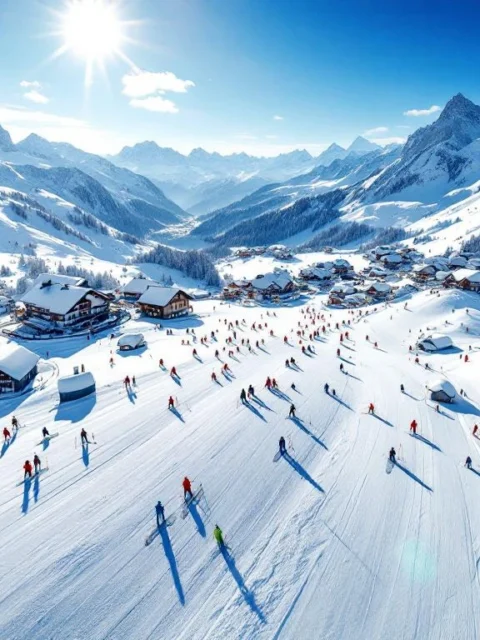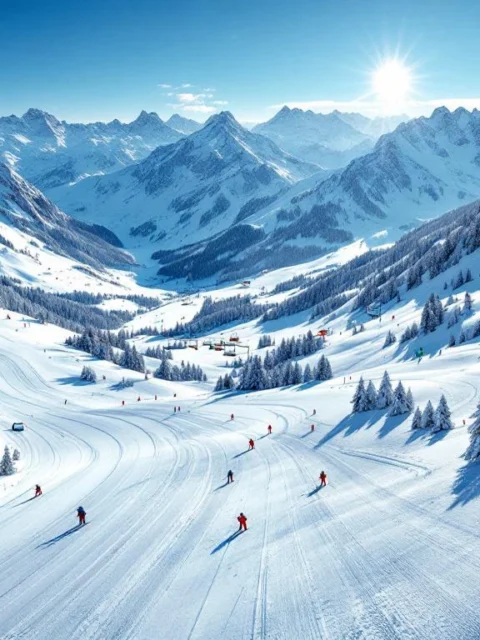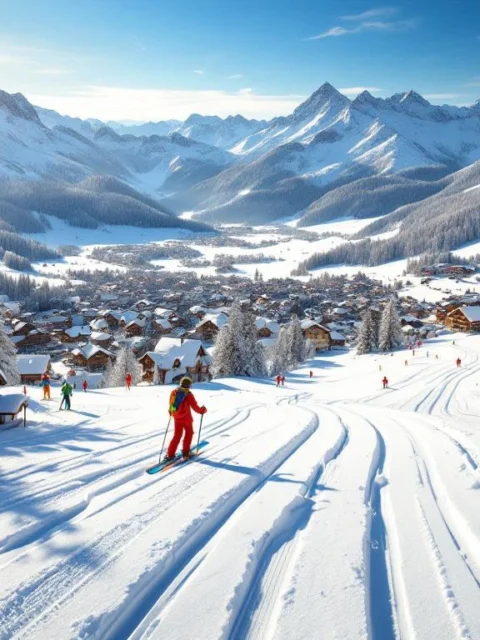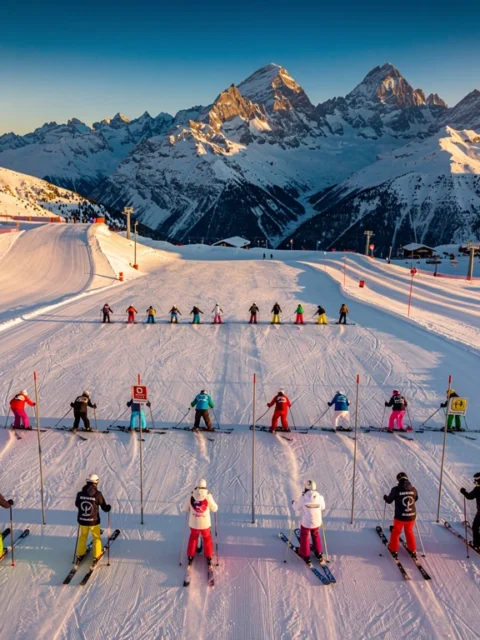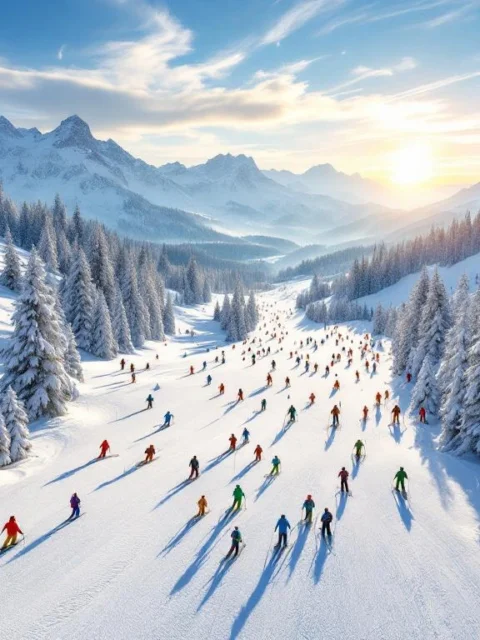Is winter sports in Switzerland expensive?

Yes, winter sports in Switzerland are generally more expensive than in other Alpine countries. The high cost of living, premium accommodations, and exclusive ski resorts make Switzerland one of the most expensive winter sports destinations in the world. However, there are ways to save money smartly without compromising on quality.
Why is Switzerland known as an expensive winter sports country?
Switzerland has a well-deserved reputation as a premium winter sports destination due to various factors that drive up prices. The country is known for its perfect slopes, luxurious accommodations, and excellent service, but this quality comes with a price tag.
The high cost of living in Switzerland forms the basis for expensive winter sports. Everything from staff to food costs more, which is reflected in ski resort prices. Additionally, many Swiss resorts deliberately position themselves as exclusive destinations for affluent winter sports enthusiasts.
The strong Swiss franc makes the country extra costly for foreign visitors. Furthermore, Swiss ski resorts invest heavily in modern lifts, artificial snow, and perfect slope maintenance, costs that are passed on to skiers.
What do ski passes cost in Swiss ski resorts?
Ski passes in Swiss ski resorts are among the most expensive in the world. A day ticket in top resorts like Zermatt or St. Moritz costs between 60-80 euros, while weekly passes can reach 350-450 euros per person.
Prices vary greatly by season and ski resort. During peak periods like Christmas holidays and February, rates are highest. Smaller, less well-known areas often offer day tickets starting from 35-45 euros.
| Ski Resort | Day Pass (€) | Week Pass (€) |
|---|---|---|
| Zermatt | 75-85 | 400-450 |
| Verbier | 65-75 | 350-400 |
| Saas-Fee | 55-65 | 300-350 |
| Andermatt | 45-55 | 250-300 |
How much do you pay for accommodation during winter sports in Switzerland?
Accommodation costs in Switzerland vary enormously, from budget hostels to ultra-luxury chalets. For a simple hotel room you’ll quickly pay 100-150 euros per night, while luxury accommodations can reach 500 euros or more per night.
Mountain accommodations are generally more expensive than stays in the valley. A chalet directly on the slopes often costs double compared to similar accommodation in the village. During high seasons, prices increase by 30-50%.
Budget options like youth hostels or simple guesthouses start around 50-70 euros per night. Self-catering apartments often offer the best value for money for longer stays.
Are ski lessons in Switzerland more expensive than in other Alpine countries?
Yes, ski lesson prices in Switzerland are on average 20-30% higher than in Austria, France, or Italy. A group lesson costs approximately 50-70 euros per day, while private lessons can reach 80-120 euros per hour.
The higher prices do reflect the excellent quality of Swiss ski instruction. Swiss ski instructors are known for their professionalism, multilingual abilities, and excellent technical skills.
When you compare ski lessons through platforms that provide access to professional ski schools and instructors, you can easily compare prices and find the best instructor for your level and budget. These comparison tools help you make the perfect match between quality and costs.
How can you save money on winter sports in Switzerland?
There are various smart ways to save on budget winter sports in Switzerland without compromising on enjoyment. Early booking discounts can save you up to 20% on accommodation and ski lessons.
Travel outside high season for the best deals. January (after New Year) and March often offer excellent snow conditions at lower prices. Choose valley accommodation and use public transport to ski resorts.
- Book early for discounts up to 20%
- Travel outside peak periods
- Choose valley accommodation with shuttle service
- Shop at local supermarkets instead of mountain restaurants
- Take advantage of free activities like winter hiking
- Consider multi-day ski passes for better rates
Which Swiss ski resorts offer the best value for money?
Lesser-known Swiss ski resorts often offer excellent facilities at significantly lower prices than famous resorts. Areas like Andermatt, Saas-Fee, and Flims-Laax combine good slopes with more reasonable rates.
These ski resorts offer modern lifts, varied slopes, and good snow reliability, but without the premium prices of St. Moritz or Zermatt. They are perfect for winter sports enthusiasts who want to experience Swiss quality without the top budget.
Laax is known for its excellent snow parks, while Saas-Fee makes glacier skiing possible until summer. Andermatt combines traditional Swiss charm with modern facilities.
Conclusion: is winter sports in Switzerland worth the money?
Winter sports in Switzerland are indeed expensive, but offer unparalleled quality, reliable snow, and breathtaking landscapes. For many winter sports enthusiasts, the Swiss experience is worth every euro, especially when you plan smartly and save money.
The key lies in finding the right balance between costs and experience. By using comparison platforms, you can find the best ski lessons that fit your budget and level, without compromising on quality.
Whether you’re an absolute beginner or an experienced powder hunter, Switzerland offers something special for everyone. With proper planning and smart choices, you can enjoy world-class winter sports without completely exhausting your budget.


